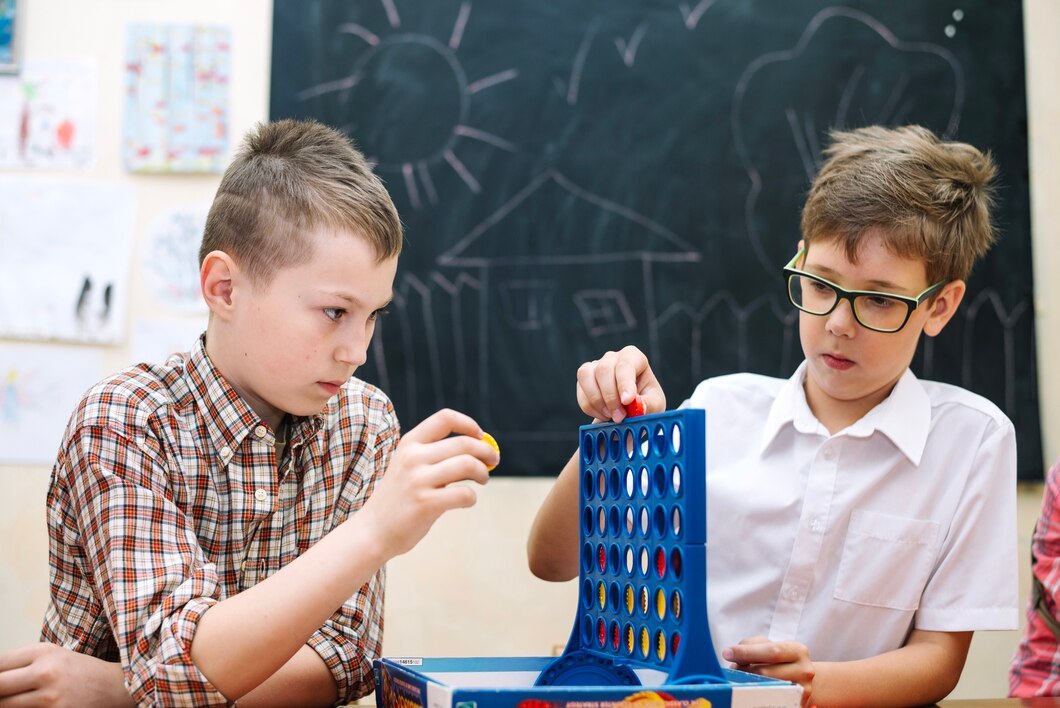As developers of nonTRIVIAl games, we have personally experienced the transformative effect of play in broadening children's perspectives. Our dedication to enlarging young minds through trivia has made us recognize how critical it is for kids to acquire reasoning, intuition, and strategic thinking abilities. Playing games is a great way to foster these skills without the demands of academic instruction.We offer a carefully chosen list of logic games in this post that are not only enjoyable to play but also greatly advance cognitive growth. As psychologists and educators, we know how important play is for learning, and these games are a great example of that idea.
This list was created according to the recommendations of Maria Leybenzon, child cognitive skills advisor.
This list was created according to the recommendations of Maria Leybenzon, child cognitive skills advisor.
1. Set
In the card game Set, players compete to locate sets of three cards that have the same or distinct qualities. Each of the 81 distinct cards in the game has four characteristics: color (red, green, or purple), form (oval, squiggle, or diamond), number (one, two, or three), and shading (solid, striped, or open). Set improves a child's capacity to process several characteristics at once, which is an essential skill in science and arithmetic.
Amazon
In the card game Set, players compete to locate sets of three cards that have the same or distinct qualities. Each of the 81 distinct cards in the game has four characteristics: color (red, green, or purple), form (oval, squiggle, or diamond), number (one, two, or three), and shading (solid, striped, or open). Set improves a child's capacity to process several characteristics at once, which is an essential skill in science and arithmetic.
Amazon

2. Dobble — Spot It!
Dobble, a game of speed, perception, and reflexes, is called Spot It! in North America. Each of the 55 circular cards in the game has eight symbols on it. There is always exactly one matching symbol between any two cards. In a race against time, players identify and declare which symbol on two cards matches. This quick-paced game is especially good at helping kids develop their capacity to concentrate and block out distractions—two qualities that are very important in the information-rich world of today.
Amazon
Dobble, a game of speed, perception, and reflexes, is called Spot It! in North America. Each of the 55 circular cards in the game has eight symbols on it. There is always exactly one matching symbol between any two cards. In a race against time, players identify and declare which symbol on two cards matches. This quick-paced game is especially good at helping kids develop their capacity to concentrate and block out distractions—two qualities that are very important in the information-rich world of today.
Amazon
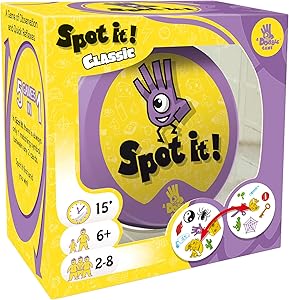
3. UNO
In the card game UNO, players alternately match cards in their hands by color or number with the card that is now visible on top of the deck. Special action cards produce moments that change the game. Despite its seeming simplicity, UNO teaches kids how to recognize numbers and colors and how to adjust to new situations. It is also excellent for teaching good sportsmanship and how to take turns.
Amazon
In the card game UNO, players alternately match cards in their hands by color or number with the card that is now visible on top of the deck. Special action cards produce moments that change the game. Despite its seeming simplicity, UNO teaches kids how to recognize numbers and colors and how to adjust to new situations. It is also excellent for teaching good sportsmanship and how to take turns.
Amazon
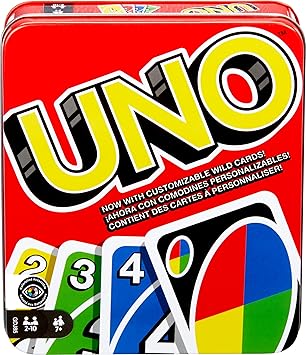
4. Blink
In the frantic game Blink, two players compete to be the first to use every card in the deck. In a hurry, players attempt to match the cards' color, count, or shape. This quick-wit card-matching game improves your ability to recognize patterns and make snap decisions. It is great for helping kids become more cognitively flexible so they can quickly transition between different kinds of learning.
Amazon
In the frantic game Blink, two players compete to be the first to use every card in the deck. In a hurry, players attempt to match the cards' color, count, or shape. This quick-wit card-matching game improves your ability to recognize patterns and make snap decisions. It is great for helping kids become more cognitively flexible so they can quickly transition between different kinds of learning.
Amazon
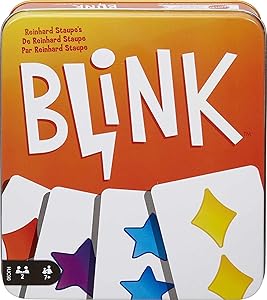
5. Reversi
In the board game Reversi, sometimes referred to as Othello, players position their colored discs on the board and, when their opponent's discs are trapped between two of their own, flip them to their color. This timeless game develops spatial awareness and long-term planning. It aids kids in comprehending cause and effect throughout a series of movements, an ability that is beneficial for both academic and practical problem-solving.
Amazon
In the board game Reversi, sometimes referred to as Othello, players position their colored discs on the board and, when their opponent's discs are trapped between two of their own, flip them to their color. This timeless game develops spatial awareness and long-term planning. It aids kids in comprehending cause and effect throughout a series of movements, an ability that is beneficial for both academic and practical problem-solving.
Amazon
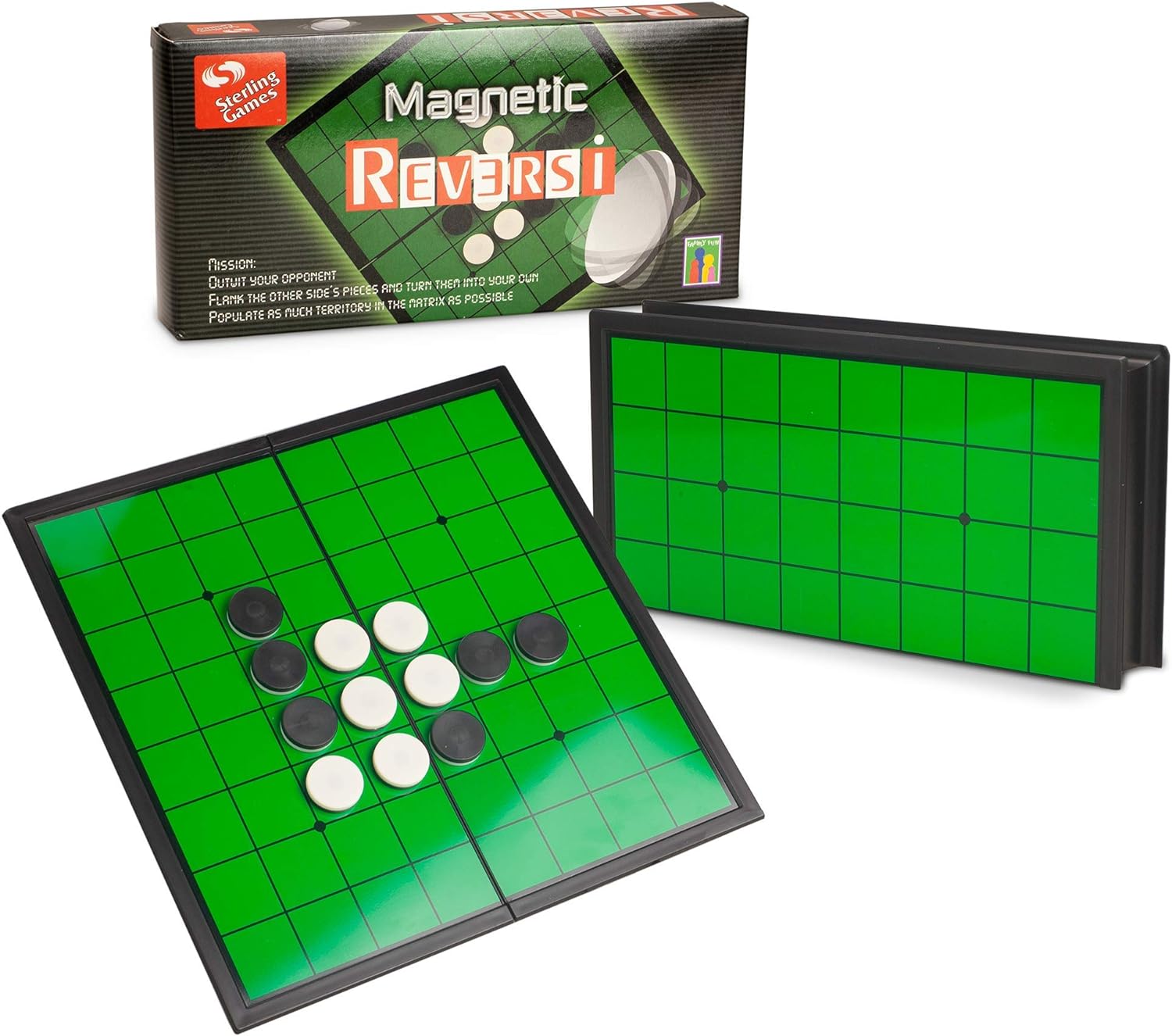
6. Rummikub
A tile-based game called Rummikub blends aspects of mahjong and rummy. By creating runs—consecutive numbers in the same color—or groups—similar numbers in different colors—players hope to be the first to use all their tiles. This game improves logical reasoning and numerical sequencing abilities. It works exceptionally well for entertainingly and engagingly reiterating mathematical subjects.
Amazon
A tile-based game called Rummikub blends aspects of mahjong and rummy. By creating runs—consecutive numbers in the same color—or groups—similar numbers in different colors—players hope to be the first to use all their tiles. This game improves logical reasoning and numerical sequencing abilities. It works exceptionally well for entertainingly and engagingly reiterating mathematical subjects.
Amazon
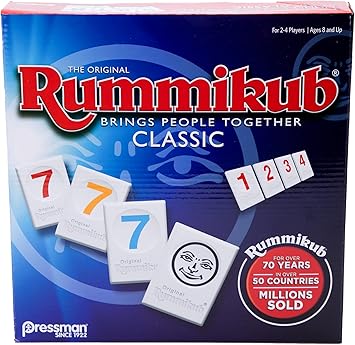
7. Mancala
Mancala, a game with holes arranged in rows on a board with tiny stones, beans, or seeds, is among the first known games. In an effort to capture more pieces than their opponent, players distribute their pieces in turn. This age-old game improves reasoning and counting abilities. Its straightforward principles and intricate gameplay provide kids with a great foundation in complicated problem-solving.
Amazon
Mancala, a game with holes arranged in rows on a board with tiny stones, beans, or seeds, is among the first known games. In an effort to capture more pieces than their opponent, players distribute their pieces in turn. This age-old game improves reasoning and counting abilities. Its straightforward principles and intricate gameplay provide kids with a great foundation in complicated problem-solving.
Amazon
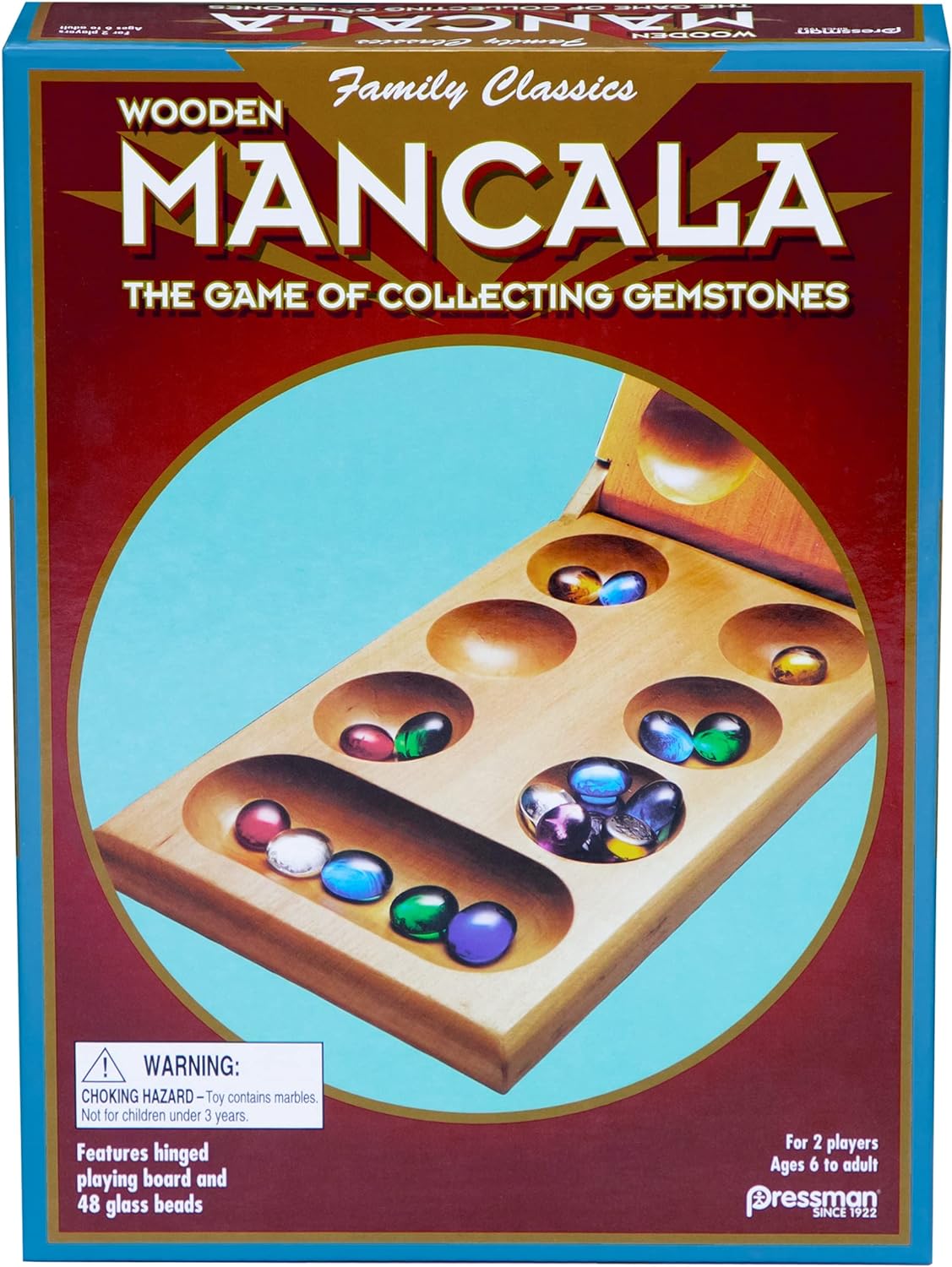
8. Triominos
In the triangular domino game Triominos, players match numbers on pieces with three sides. By arranging their pieces in the playing area strategically, they are able to score points. This game promotes logical placement and spatial reasoning. It is excellent for helping kids improve their multidimensional thinking skills, which are essential for advanced math and engineering.
Amazon
In the triangular domino game Triominos, players match numbers on pieces with three sides. By arranging their pieces in the playing area strategically, they are able to score points. This game promotes logical placement and spatial reasoning. It is excellent for helping kids improve their multidimensional thinking skills, which are essential for advanced math and engineering.
Amazon
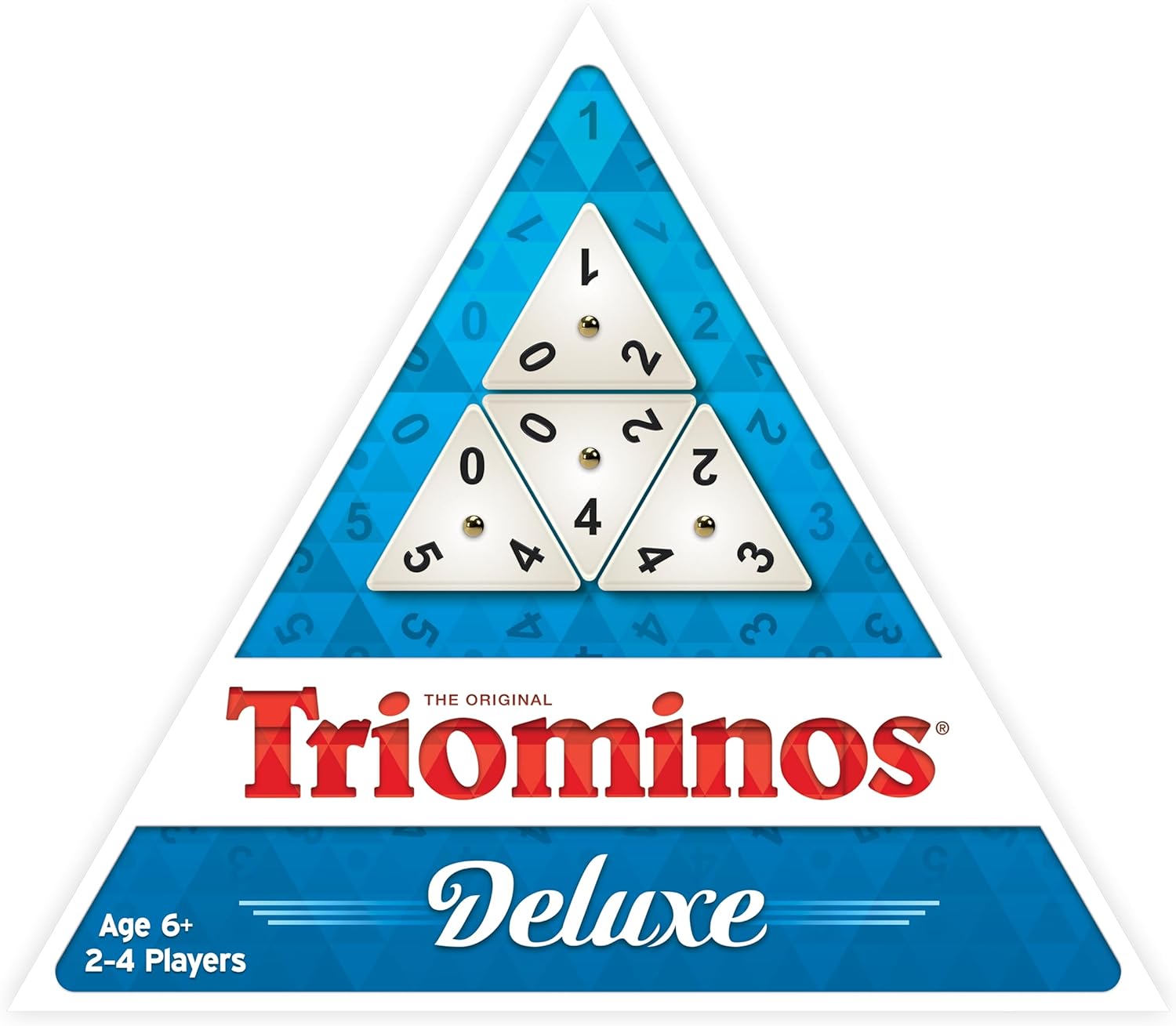
9. Blokus
In the abstract game Blokus, players aim to arrange every piece they have on the board. At most one other piece of the same color must come into contact with each new piece, but only at the corners. This game tests your ability to plan ahead and use spatial reasoning. It works especially well to help kids build their mental visualization and manipulation skills for shapes, which is an important geometry and design talent.
Amazon
In the abstract game Blokus, players aim to arrange every piece they have on the board. At most one other piece of the same color must come into contact with each new piece, but only at the corners. This game tests your ability to plan ahead and use spatial reasoning. It works especially well to help kids build their mental visualization and manipulation skills for shapes, which is an important geometry and design talent.
Amazon
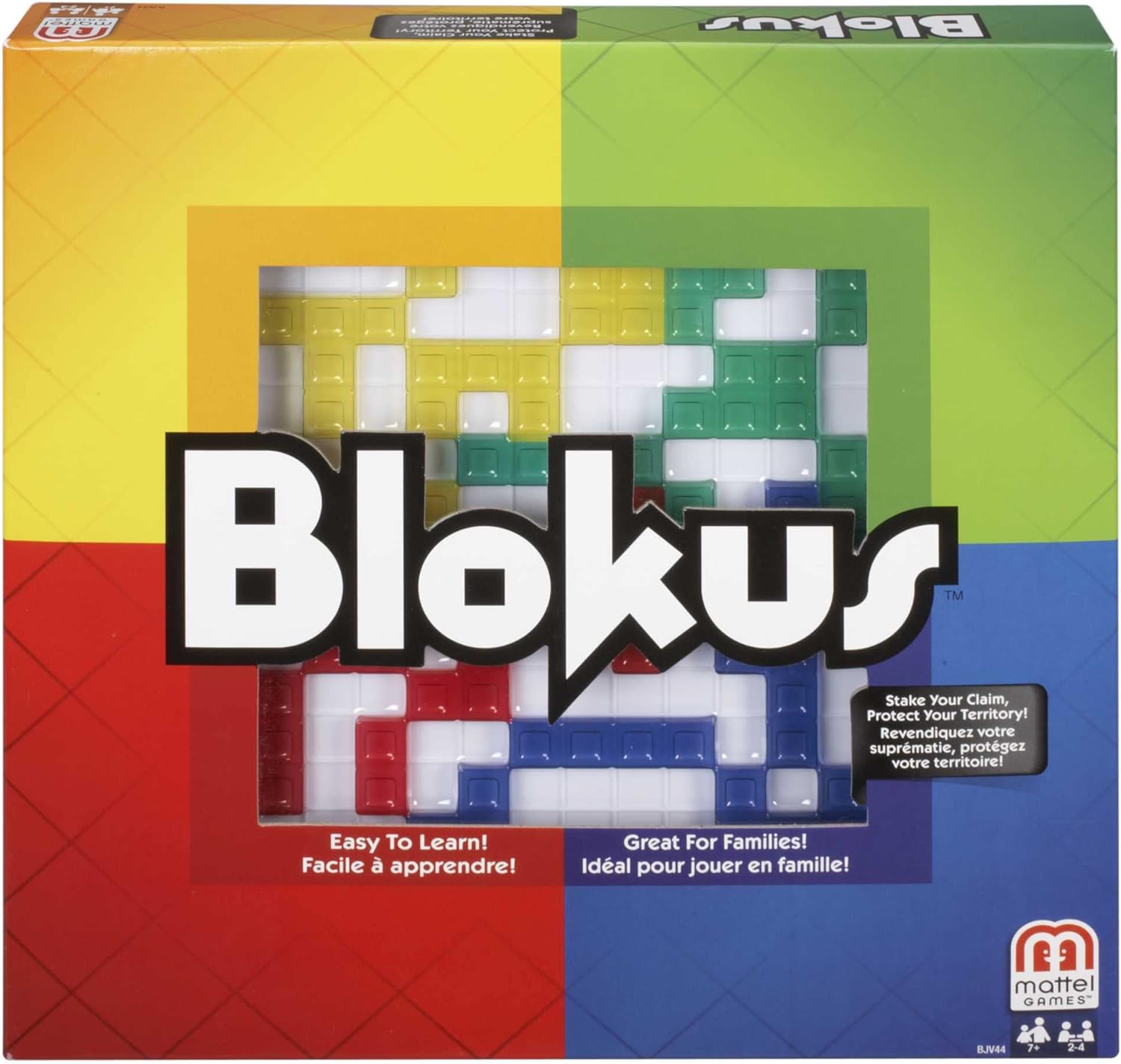
10. Hanabi
In the cooperative card game Hanabi, players collaborate to produce the ideal fireworks show. The catch is that all cards are visible to you, save for your own. Gamers need to retain the knowledge they have been provided and provide helpful hints to one another. This special mechanism helps kids become more adept at communicating, considering other people's viewpoints, and cooperating to achieve a common objective. The lack of individual winners encourages a feeling of group accomplishment and teaches kids the importance of teamwork.
Amazon
In the cooperative card game Hanabi, players collaborate to produce the ideal fireworks show. The catch is that all cards are visible to you, save for your own. Gamers need to retain the knowledge they have been provided and provide helpful hints to one another. This special mechanism helps kids become more adept at communicating, considering other people's viewpoints, and cooperating to achieve a common objective. The lack of individual winners encourages a feeling of group accomplishment and teaches kids the importance of teamwork.
Amazon
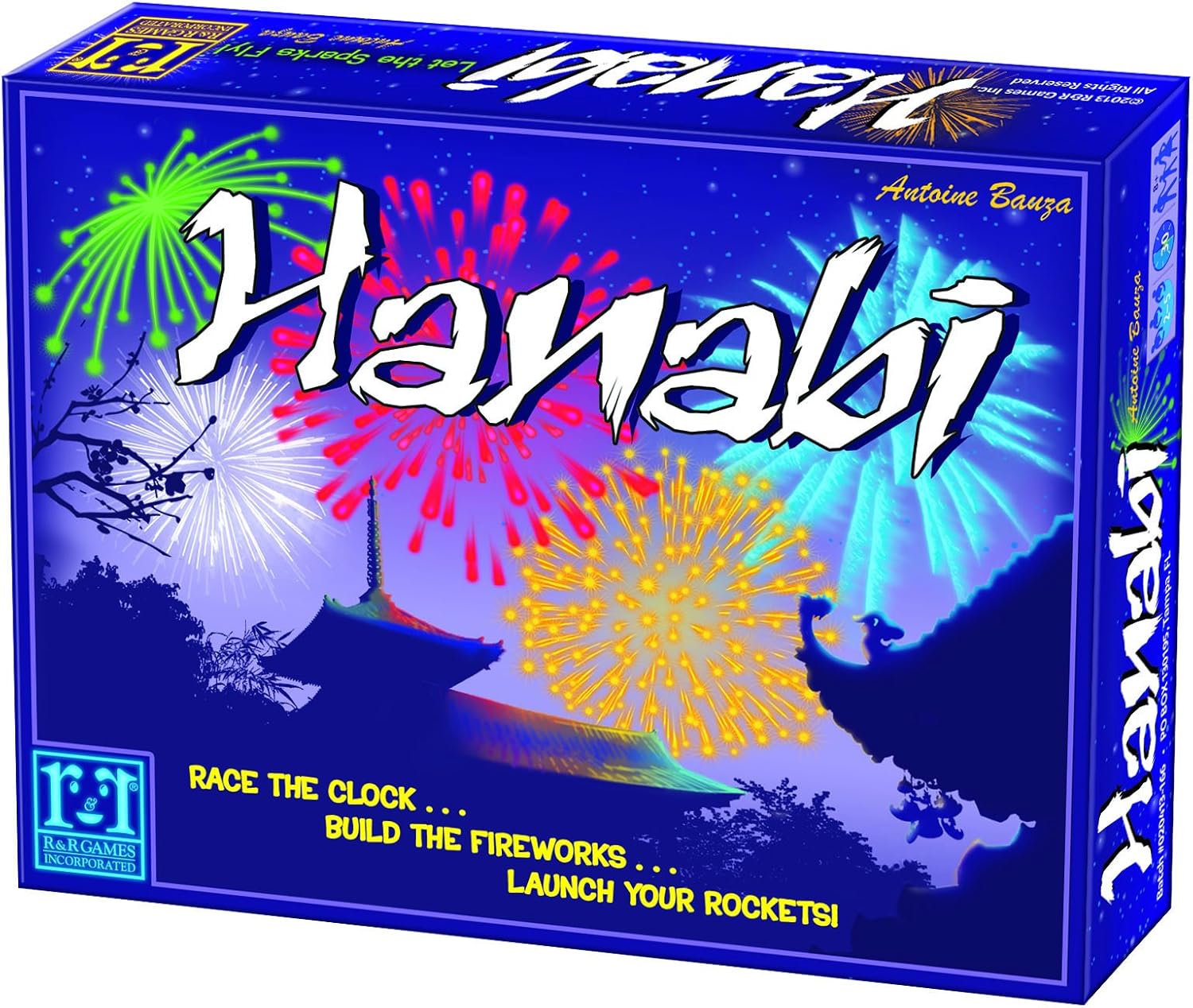
These logic games are a great method to help your child learn critical thinking techniques, broaden their horizons, and cultivate a passion for nontrivial information. Children who participate in these activities improve their capacity for logical thought, pattern recognition, and problem-solving, in addition to having fun.
These abilities are essential for expanding one's knowledge base and confidently taking on challenging tasks. Recall that non-traditional educational environments should not be the exclusive domain for cognitive growth. Our kid-friendly sofa games that are not exactly trivial also play a big part in this expansion. They are made to pique children's interest, promote reasoned thought, and expose them to a variety of amazing ideas and facts.
Giving kids the chance to think critically and creatively, whether through our tabletop games or our nonTRIVIAl options, is essential to raising well-rounded, intellectually curious people. We are contributing to the development of tomorrow's creative thinkers by creating an engaging and interactive learning environment.
These abilities are essential for expanding one's knowledge base and confidently taking on challenging tasks. Recall that non-traditional educational environments should not be the exclusive domain for cognitive growth. Our kid-friendly sofa games that are not exactly trivial also play a big part in this expansion. They are made to pique children's interest, promote reasoned thought, and expose them to a variety of amazing ideas and facts.
Giving kids the chance to think critically and creatively, whether through our tabletop games or our nonTRIVIAl options, is essential to raising well-rounded, intellectually curious people. We are contributing to the development of tomorrow's creative thinkers by creating an engaging and interactive learning environment.
